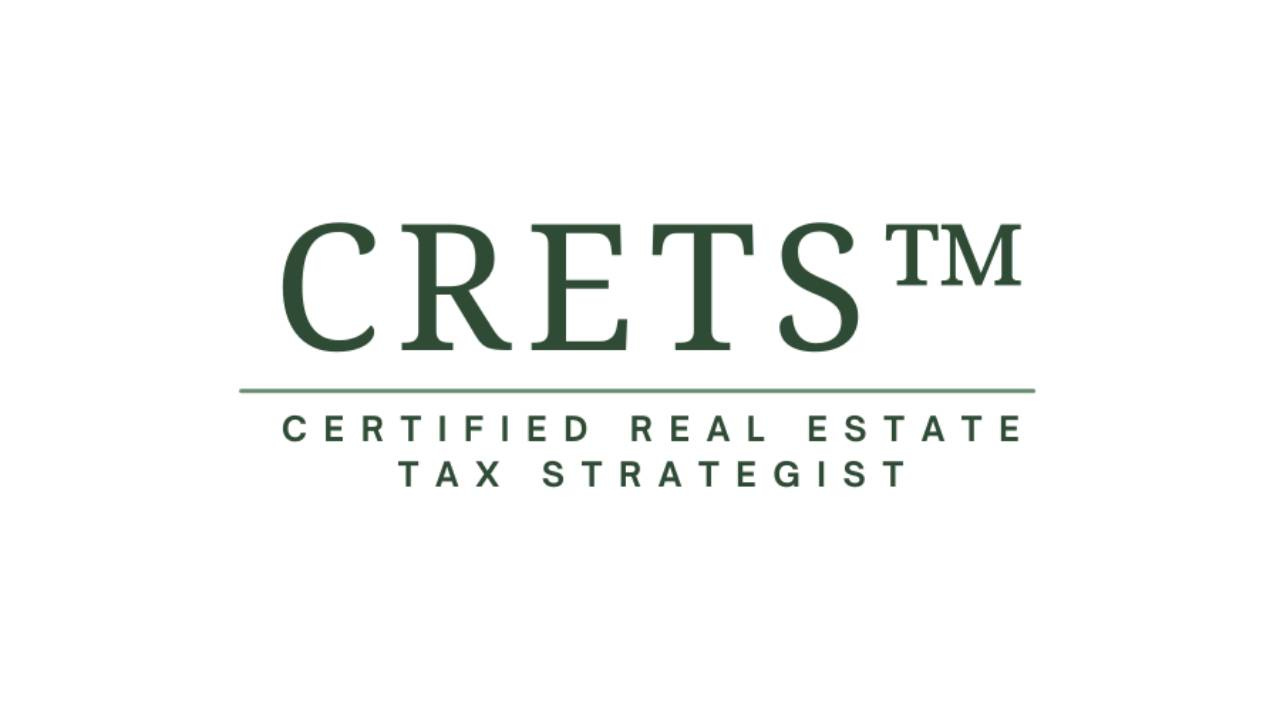Why You Should Sign Up For The CRETS Certification
and Why I Loved It
If you’ve ever stared at a tax return with rental property and wondered whether it’s “passive” or “active,” caught yourself Googling how does a 1031 exchange work?, or thought pots and pans meant you reported a rental property on Schedule C instead of Schedule E then I’ve got something for you.
It’s called CRETS, short for Certified Real Estate Tax Strategist, and it’s a credential built specifically for tax pros who want to master real estate taxation. The fall session kicks off today, and if you work with even a handful of real-estate clients (or want to explore this area), this one’s worth your attention.
What Is CRETS?
CRETS is the only real-estate-specific tax credential for EAs and CPAs. It’s not another generic CE course, it’s a full certification program focused entirely on the tax side of real estate.
Over eight weeks, you’ll go deep into things like:
Depreciation strategies and cost segregation
Short-term rentals
Entity structures and 1031 exchanges
Dealer vs. investor classifications
Passive loss limitations
By the end, you sit for a comprehensive exam and, if you pass, you earn the CRETS designation. You can tack those four letters after your name and mean it, you’ll actually know real estate tax inside out.
Who is Natalie?
Natalie Kolodij, EA, CRETS, is the creator and lead instructor of the CRETS program. She’s a nationally recognized tax educator and real estate investor who’s spent years helping tax pros master one of the most misunderstood areas of the code, real estate taxation. Natalie’s known for her clear, practical teaching style and her ability to make complex topics approachable (and even fun). She has taught for national organizations like NATP and NAEA, runs a thriving real estate focused tax practice, and brings that real-world experience into every lesson. When you take CRETS, you’re learning directly from one of the top minds in the real-estate-tax world, someone who genuinely wants to see other professionals succeed in this niche. Plus, she’s just cool , approachable, real, and the opposite of the stuffy, monotone instructor vibe we’ve all endured at some point in time.
What You Get in the Fall Session
The next cohort opens Monday at 3 p.m. ET on cretaxstrategist.com — and spots are limited.
Here’s the quick rundown:
1-2 Topics per week.
8 live Q&A sessions with Natalie to unpack the tough stuff.
20+ hours of IRS-approved CE. Real education that counts.
Flexible schedule. Everything’s recorded if you can’t make it live.
Final exam. Pass it, and you’re officially certified.
It’s structured for working tax pros: manageable, practical, and surprisingly fun.
Why It’s Worth It
When I first heard about CRETS, I thought, Do I really need another credential?
Here’s what stood out for me:
1. Real-world learning.
Natalie’s examples are straight from client files. She breaks down short-term-rental rules and 1031 exchanges in a way that finally makes them click.
2. Confidence.
It gives you more confidence in advising on the nuances of real estate tax matters.
3. Community.
The weekly Q&As were like a mastermind group. EAs and CPAs comparing notes, swapping strategies, discussing client stories. It added a personal touch to the program.
4. Career boost.
After adding the CRETS credential, I had people reach out inquiring about my services.
Why You Should Sign Up
If real-estate clients are part of your practice (or you’d like them to be), CRETS is a no-brainer. You’ll:
Deepen your technical expertise
Knock out a big chunk of CE hours
Differentiate yourself from generalists
Join a network of specialists who share referrals and resources
And, honestly, it is nice to take a course that makes you better at your job instead of just checking a compliance box.
Don’t Wait
Registration opens Monday at 3 p.m. ET, and Natalie keeps class sizes small so everyone gets personal attention. If you’ve been meaning to specialize, this is your sign.
👉 Go to cretaxstrategist.com and grab your spot before it fills up.
Disclosure:
This gets the Josh seal of approval and like all of my opinions, this is my opinion, I’m not paid for it and I paid for the program when I did it.





